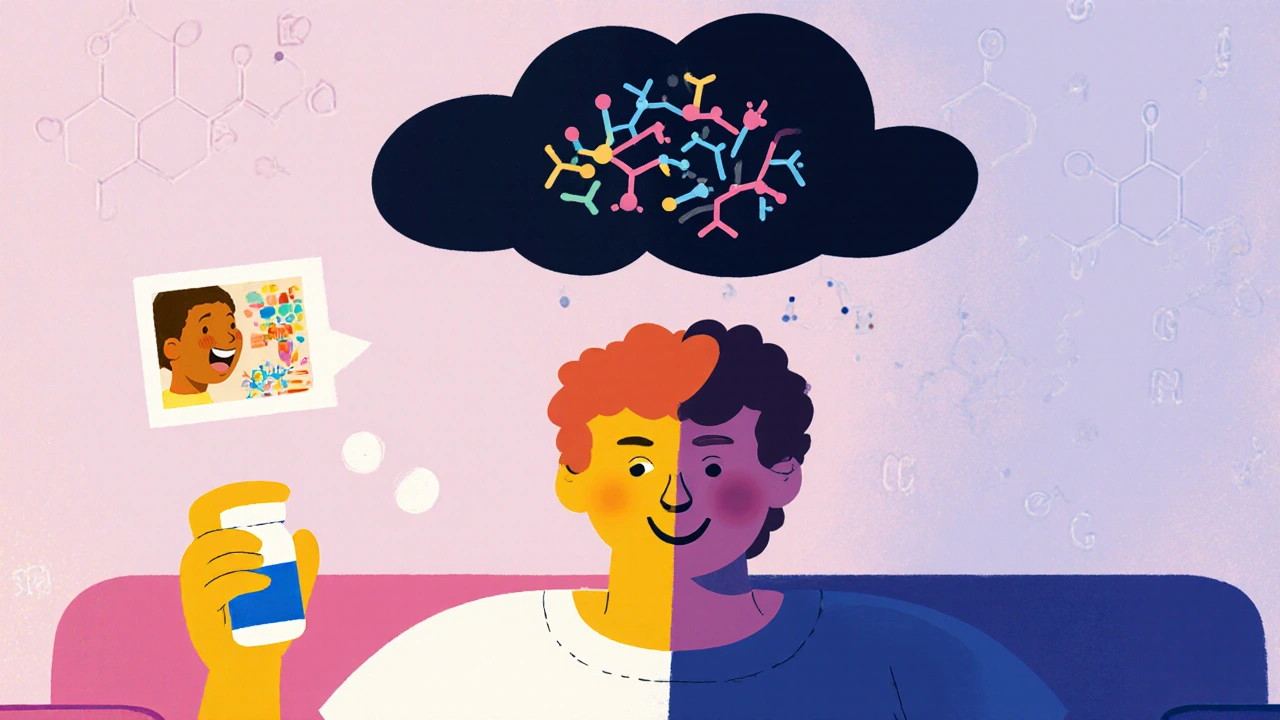Opioids and Depression: How Pain Medications Affect Mental Health
When you take opioids, a class of powerful pain-relieving drugs that act on the brain’s reward and pain centers. Also known as narcotics, they’re prescribed for severe pain but come with hidden risks that many don’t see until it’s too late. One of the most overlooked effects? depression, a persistent low mood that can develop even in people with no prior history of mental health issues. It’s not just a side effect—it’s a direct result of how opioids change brain chemistry over time.
Here’s the thing: opioids flood your brain with dopamine, making you feel good at first. But over weeks or months, your brain starts producing less of its own dopamine. That’s when the crash happens—fatigue, lack of motivation, feeling numb to joy. This isn’t just "feeling down." It’s a real, measurable shift in brain function that can last long after you stop taking the drug. And if you’re already dealing with chronic pain, the cycle gets worse: pain leads to opioids, opioids lead to depression, depression makes pain feel worse. opioid use disorder, a medical condition where dependence on opioids leads to harmful behaviors and loss of control. is often mistaken for laziness or weakness, but it’s a neurological adaptation, not a character flaw.
What’s even more concerning is that many doctors don’t screen for depression when prescribing opioids. Patients are told to take the pills, told to call if the pain returns, but rarely asked how they’re feeling emotionally. The result? People suffer in silence, thinking their low mood is just part of being in pain. But the data doesn’t lie—studies show people on long-term opioids are two to three times more likely to develop clinical depression than those not using them. And when depression kicks in, it’s harder to quit opioids, because the brain now needs them just to feel "normal."
That’s why this collection matters. You’ll find real stories and science-backed insights on how these drugs interact with your mind, what signs to watch for, and how to break the cycle. Some posts dive into delayed reactions to medications, others show how patient feedback helps uncover hidden risks. You’ll see how drug interactions, long-term use, and even generic vs. brand-name versions can play a role. This isn’t about scare tactics—it’s about awareness. If you or someone you care about is on opioids and feeling off, this is the guide you need. The articles ahead don’t just describe the problem—they give you tools to act before it gets worse.
Opioids can worsen depression over time, even when taken as prescribed. Learn how mood changes happen, what to watch for, and how to monitor and treat both pain and depression together.

